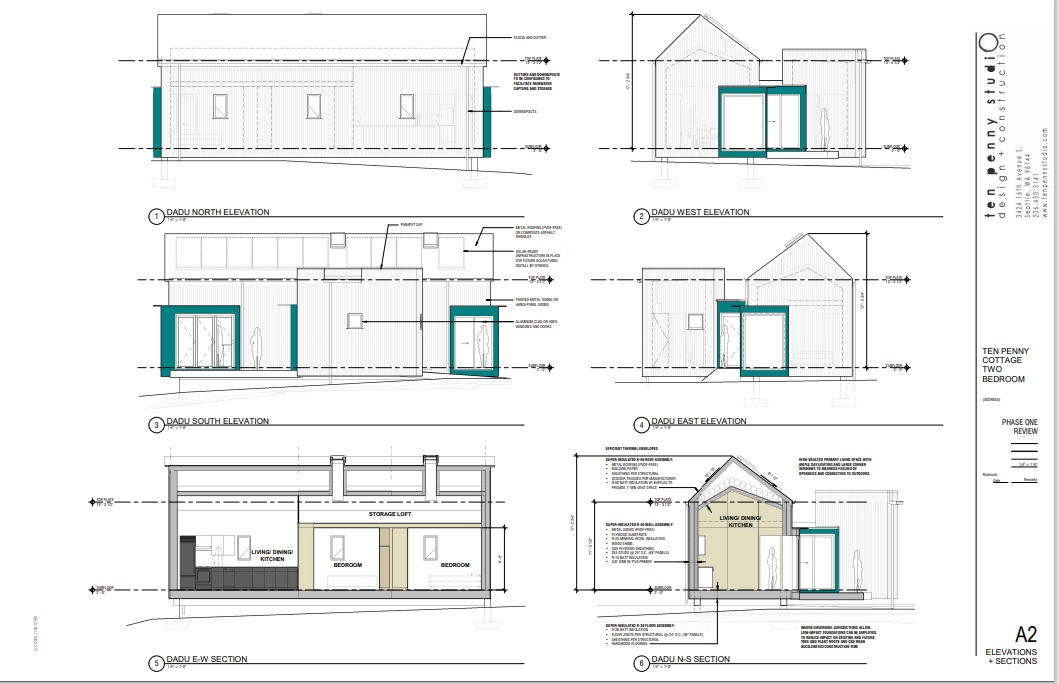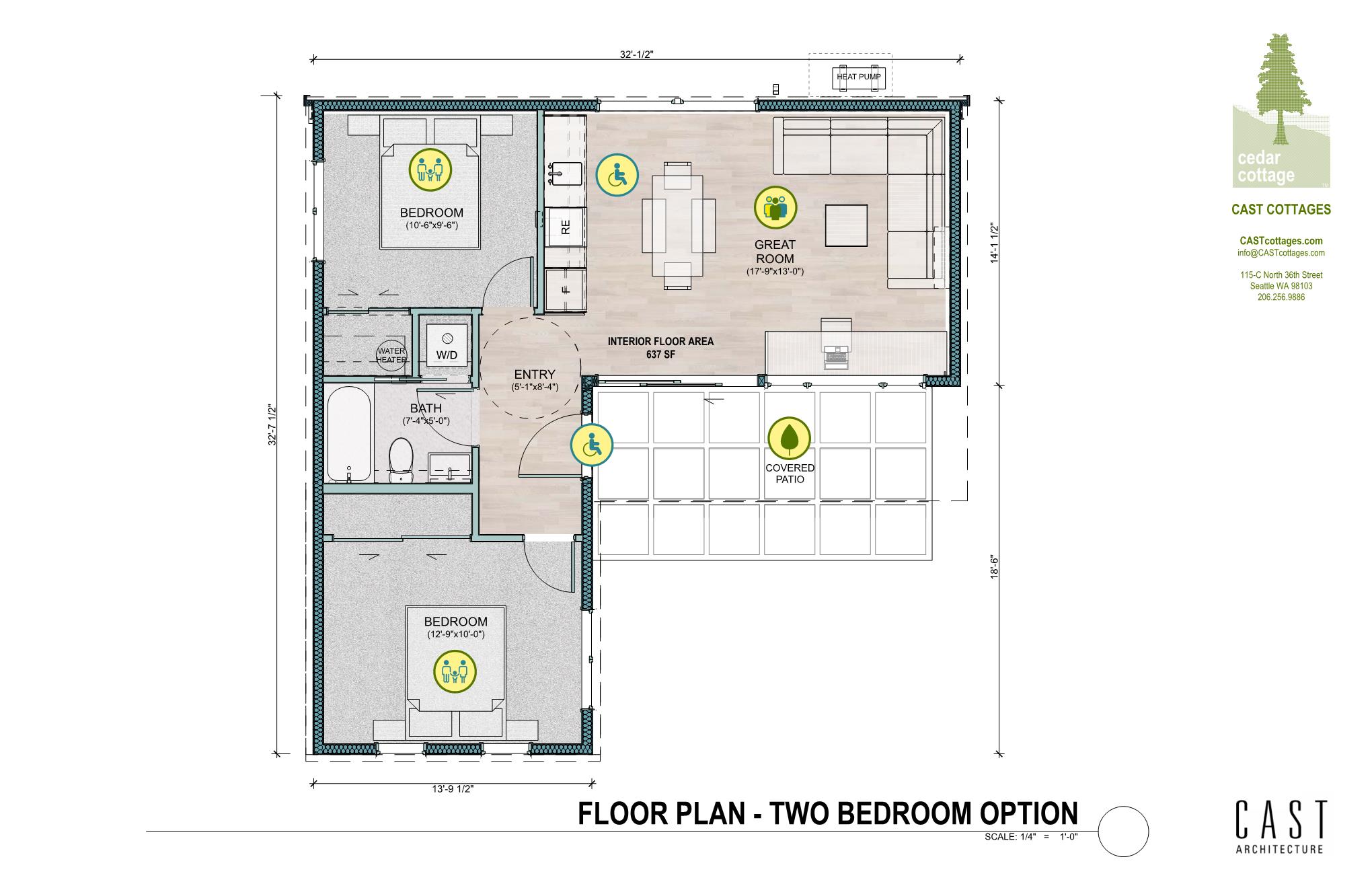ADU
an accessory dwelling unit (ADU) is a separate living space within a house or on the same property as an existing house. These units are not legal unless they have been established through a permit process. A legally permitted unit in the home is called an attached accessory dwelling unit (AADU)
BACK TO SERVICES

Note: Tiny houses on wheels are treated like camper trailers. You cannot live in a tiny house on wheels (or similar equipment such as RVs and boats) on lots in Seattle city limits. If your tiny house has wheels you need to follow parking rules for large vehicles.
Pre-Approved ADU plans
The Office of Planning and Development (OPCD) launched the ADUniverse website in September 2020. The ADUniverse features a gallery of pre-approved DADU designs, a step-by-step guide to the ADU process, and a search tool to identify the feasibility of adding an ADU to your property. Created by local designers and architects, the 10 pre-approved building plans offer a faster, easier, and more predictable permitting process for creating a DADU. In most cases, you can get your permit in just 2-6 weeks. See How To Apply for a Detached Accessory Dwelling Unit Using a Standard Plan for more information about the permitting process.

Seattle's ADU Reform
n July 2019, Mayor Jenny Durkan signed legislation to remove regulatory barriers and make it easier for property owners to create accessory dwelling units (ADUs) in Seattle’s neighborhood residential zones. The new ADU regulations took effect on August 8, 2019.
Information about the new legislation is listed below:

What Permits Do You Need?
Adding within an existing house. You need a construction addition / alteration permit.
Building a detached unit. You need a construction addition / alteration permit.
Legalizing an existing unit. You need a construction permit to establish use.
You may also need to apply for electrical service changes or new services from Seattle City Light.

DADU requirements:
- The minimum lot size required for a DADU is 3,200 square feet in neighborhood residential zones
- A DADU is limited to 1,000 square feet of gross floor area in neighborhood residential zones, including RSL, and 650 square feet in a lowrise zone
- The DADU must meet all the Seattle residential, building, mechanical, electrical, and energy code requirements that apply to single-family dwellings

AADU requirements:
- An AADU is limited to 1,000 square feet in a neighborhood residential zone, including RSL, and up to 650 square feet in a lowrise zone
- The AADU must meet current standards of the Seattle residential, building, mechanical, electrical, energy, land use, environmentally critical areas, and shorelines codes
The main activity of the company is :
- ADU, DADU construction
- building of the garages, hangars,
- industrial floors, polishing of the concrete, industrial floors painting
- residential remodeling,
- building of decks and porches
- building patio
